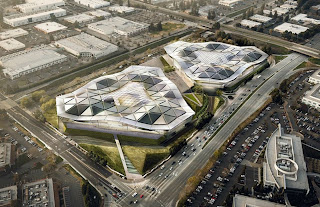Andrew Griffiths is an award-winning photographer who has recently released a series of fascinating (and free) interactive panoramas through his website.
 |
| source: http://www.lensaloft.com.au/360Pano.html |
The aerial commercial photographer captures 360 degrees and offers a unique perspective of the Australian countryside as well as some of our biggest cities.
Originally an architect, Andrew realised the potential of aerial photography after he was asked to survey the aftermath of a fire. He couldn't capture the scene from the ground so he took to the air.
Each of his panoramas requires the months of planning to achieve the amazing results you can see. He requires the experience of skilled pilots, negotiations with air traffic controllers and military precision during his shoots as things can go wrong when you are high in the sky.
As well as Australia's big citiy panoramas, he also has Falls Creek and more recently one of the Grand Canyon.
These aerials look amazing, and the saying goes that a picture tells a thousand words, so just imagine how you could get to know these cities from above!
Read more.












